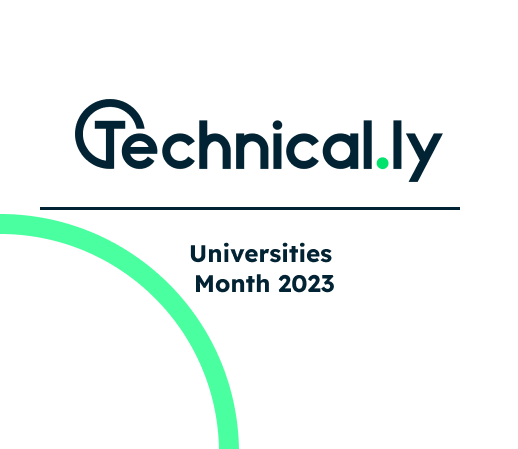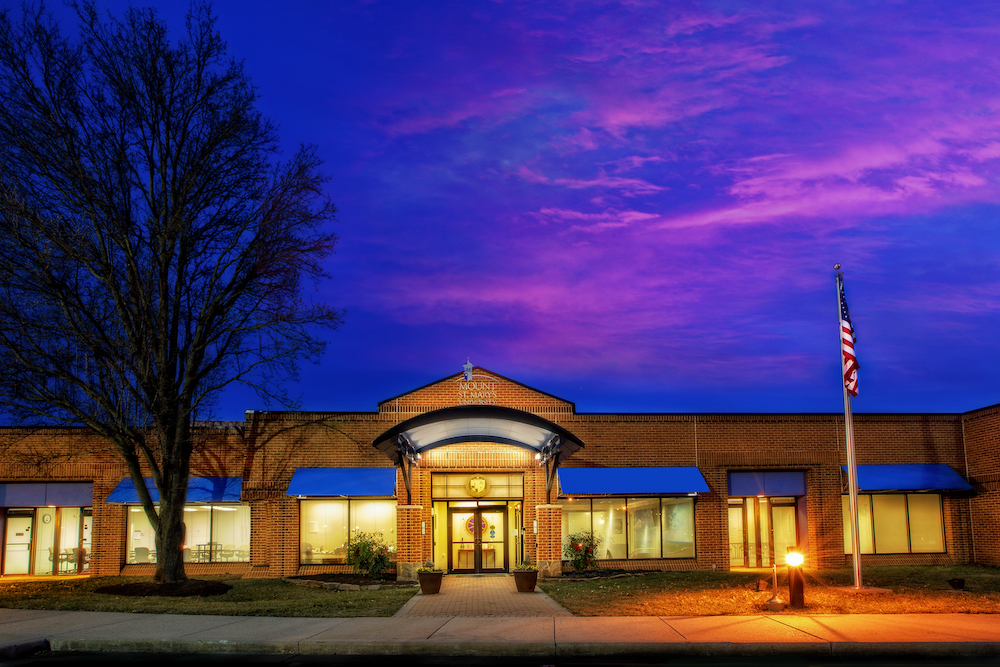Although it’s perhaps best known for housing the country’s largest Catholic seminary, Mount St. Mary’s University is moving further into Maryland’s tech talent pipeline through a new partnership with tech training and career acceleration platform SkillStorm.
The partnership is housed at the Emmitsburg-based school’s satellite campus in Frederick, via the Center for Lifelong Learning within its Division of Continuing Studies. As of Wednesday, those seeking training and certifications in such programming languages and related competencies as Java, AWS, CompTIA, Pega and Salesforce can sign up for the non-credit program via the center’s dedicated site. These and other offerings employ SkillStorm’s training modules within Mount St. Mary’s own platform. They range from free, self-guided introductory courses to nearly $3,000 instructor-driven courses for CompTIA certifications.
Jennifer Staiger, the Division of Continuing Studies’ associate provost, told Technical.ly this program builds on a year and a half of efforts to have Mount St. Mary offer more noncredit tech training and related professional development. To her, this noncredit structure allowed the university to better plug into workforce deficits throughout technical fields without needing to rely on standard four-year programs.
This program is part of other university-wide efforts, she said, including an in-development masters-level technology degree program, to create stronger connections with the tech sector throughout all of the school’s levels.
“It really does create a ladder of training opportunities for individuals in the workforce,” she said. “Maybe they get in the door with our certification, but as they get into that position, they realize that in order to take the next steps in their career, they need an undergraduate degree. … Creating all of those levels within the same university gives individuals an opportunity to continually come back, if you think about it from the perspective of lifelong learning.”
Think about the increase in data centers, technology companies in Frederick, down the I-270 corridor and down I-70 toward Baltimore: Being able to provide certifications in these technology areas really serves all those workforces.Jennifer Staiger Mount St. Mary’s University
Frederick is one of Maryland’s largest cities and acts as the western edge of a triangle with Baltimore and DC that, taken together, comprises the state’s largest population and economic hubs. Although the program is virtual and open to anybody across the US, Staiger said that she anticipates that most of the program’s target audience will come from within and close to this geography.
She also anticipates that people going through the program will help the university create partnerships throughout the constituent metro areas’ own tech companies — similar to what it maintains with the likes of AstraZeneca for health profession students and trainees, in which an employer’s workers can get tuition discounts for some types of training.
“Think about the increase in data centers, technology companies in Frederick, down the I-270 corridor and down I-70 toward Baltimore: Being able to provide certifications in these technology areas really serves all those workforces,” she said. “It also serves to recruit people to this local area, which improves the community.”
(Fun fact: That I-270 corridor is also known as “DNA Valley.”)
Although this is a noncredit program, Staiger said that the program will still support students through resources like faculty access and other pieces that distinguish its offerings from, say, a self-guided coding bootcamp.
“It’s not just that you’re taking an asynchronous course where you’re kind of on your own to figure it out,” she said. “There are people here to help provide support so that you’re not teaching yourself each of these things. In that way, we develop a lot of partnerships with local organizations.”
Such partnerships also help the companies’ employees, Staiger said, by letting them continue training with Mount St. Mary’s with the support of tuition discounts. Looking forward to a year from now, she’s aiming to get 100 to 150 students enrolled in these programs. She also hopes these enrollees can facilitate three connections with local tech companies in a structure similar to what the university has with AstraZeneca.
For those interested in enrolling but aren’t sure which certification they want, Staiger recommends some of the free introductory courses to test if a paid certification program is worth the time.
“I think that’s something that is unique to this program compared to a lot of the other certification programs that are out there in the marketplace,” she said.
Check out the available courses

This editorial article is a part of Universities Month 2023 in Technical.ly’s editorial calendar.
Join our growing Slack community
Join 5,000 tech professionals and entrepreneurs in our community Slack today!
Donate to the Journalism Fund
Your support powers our independent journalism. Unlike most business-media outlets, we don’t have a paywall. Instead, we count on your personal and organizational contributions.





